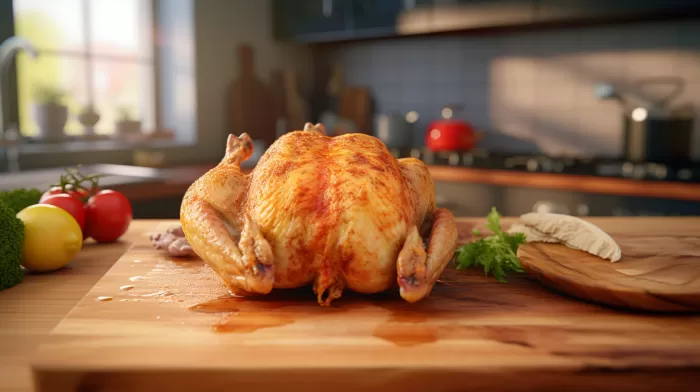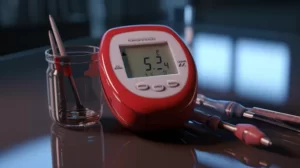Just picture this – You’re cooking your favorite chicken dish for dinner, and unbeknownst to you, there are dangerous E. coli germs lurking all around your kitchen, especially on your cutting boards and utensils. You might assume that food poisoning is something you’d only encounter when eating away from home or when restaurant workers exercise poor hygiene. However, recent Swiss research has found that a contaminated tool in your own kitchen can place you at equal, if not more, risk from drug-resistant bacteria.
Raw poultry – The hidden culprit
According to this eye-opening research, the main cause behind the presence of drug-resistant E. coli germs in your home is none other than raw chicken and turkey. What’s even scarier is that after handling raw poultry, your hands and your cutting boards can remain contaminated with bacteria, increasing your chances of falling prey to various illnesses.
Andreas Widmer, a researcher at the University Hospital in Basel, explains, “The spread of multi-drug resistant bacteria has been associated with the hospital setting, but these findings suggest that transmission of drug-resistant E. coli occurs in both hospitals and households.” Widmer further stresses on the importance of hand hygiene, not only after handling raw poultry, but also after contacting cutting boards used in poultry preparation.
A closer look at the research results
As part of the study undertaken by the Swiss scientists, they focused on examining cutting boards to evaluate the extent of bacterial contamination. Surprisingly, they found that 6.5% of hospital cutting boards used in the preparation of poultry were tainted with resistant E. coli. When it came to the cutting boards used in households, they discovered E. coli on 3.5% of these surfaces.
Not just the cutting boards, but the researchers also found that a whopping 50% of the hospital kitchen gloves were contaminated with this drug-resistant bug. This is definitely food for thought and serves as a wake-up call to every home cook to reconsider the safety of their cooking process and environment.
Take charge of your kitchen hygiene
It doesn’t matter whether you are a cooking enthusiast or just someone who cooks for themselves as a necessity, it’s crucial that you maintain kitchen hygiene to reduce the risk of food poisoning and bacterial infections. Here are some practical tips to ensure you keep E. coli bacteria at bay in your own kitchen:
1. Separation of cutting boards
Having separate cutting boards for raw meat/poultry and cooked food/vegetables is essential to avoid cross-contamination. Invest in different colored boards or simply label them for ease of identification. Make sure to sanitize your cutting boards regularly, especially right after cutting raw chicken or turkey.
2. Proper washing and disinfection of utensils and cutting boards
Never be complacent about washing your utensils, cutting boards, and hands during and after the cooking process. Make it a habit to wash your cutting boards thoroughly with hot, soapy water followed by a rinsing step under hot water. Disinfecting your boards with a mild bleach solution is an added precautionary step that’s worth taking.
3. Safe handling of raw poultry
When dealing with raw chicken or turkey, be mindful of not allowing their juices to spread onto counter surfaces, other foods, or utensils. Regularly sanitize countertops, and always wash your hands after handling raw poultry.
4. Storing meat and poultry products in your refrigerator
Store all raw meat, poultry products, and even seafood on the lowest shelf of your refrigerator to prevent any possible juices from dripping onto other food items. Make sure no other food products or containers are stacked below them.
5. Use a food thermometer when cooking
Relying on a food thermometer will ensure that poultry products are cooked to an adequate temperature, killing any harmful bacteria (the USDA recommends cooking poultry to an internal temperature of 165°F or 74°C).
Always remember that good hygiene and proper cooking techniques in your own kitchen can be your best defense against the havoc bacteria might wreak. Ignorance isn’t bliss when it comes to the deadly consequences of E. coli contamination, so take charge of your kitchen and ensure that your meals are prepared with the care they deserve.



